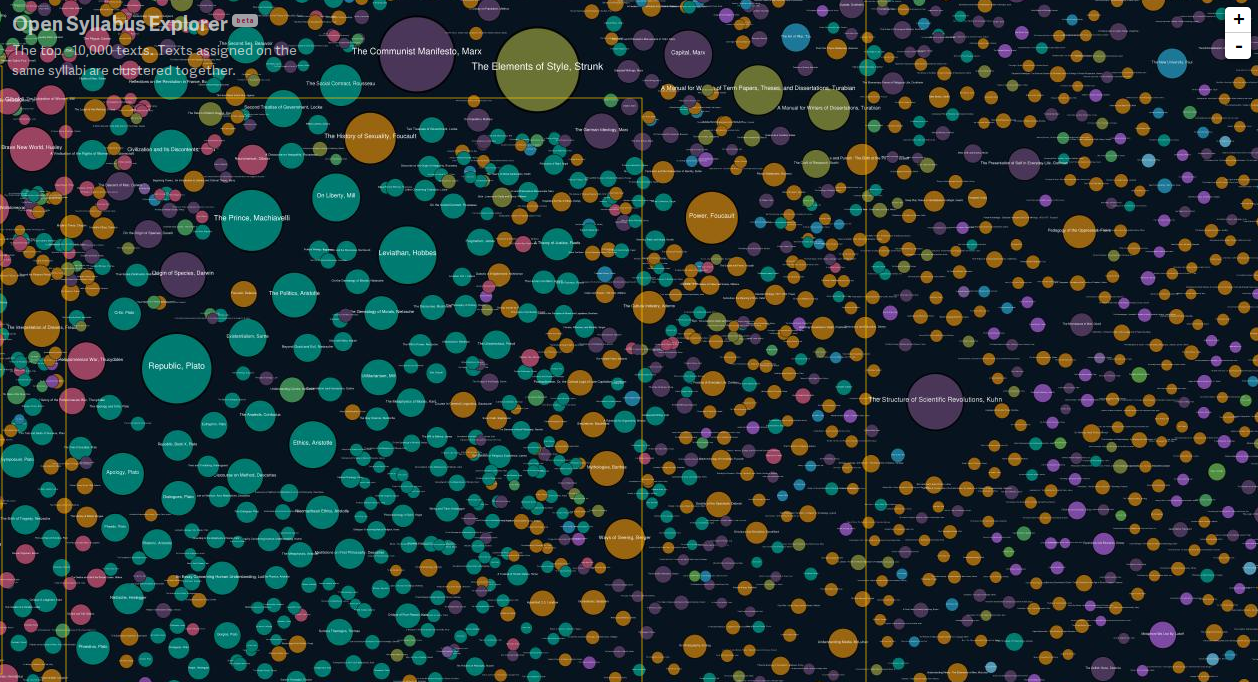Open Syllabus Project
- Alex Gil
- Joe Karaganis (American Assembly)
- David McClure (Stanford)
- Dennis Yi Tenen
Opening the Curricular Black Box
In late January of 2016, we were a part of a group of scholars at Columbia and Stanford Universities who unveiled the Open Syllabus Explorer—an online tool that aggregates data from over one million syllabi collected from college and university websites. So far the Syllabus Explorer does only a few things: It shows how often works are taught, what works are taught together, and where and in what field they’re taught. But we think it has the potential to evolve into something more powerful: a tool that can help us better reflect on the formation of our intellectual legacies and, in the process, improve the quality of higher education globally.
Building on the work of scholars like Dan Cohen, Alison Head, Jeffrey Schnapp, and David Weinberger, the Explorer offers a rich empirical account of teaching across colleges and universities, and, when the data is good enough, at a state-by-state and institution-by-institution level. It offers new way to study the spread of ideas as well as a novel impact metric based on how often works are taught—introducing some much-needed complexity into metrics based solely on citation counts. As we improve the ability to sort by date, the Explorer will help tell stories about the evolution of fields, the formations of canons, and the teaching trajectories of individual works. As we improve the location filters, it will be possible for university presses to understand when and where their catalogs are taught, leveling the data playing field for small presses. Libraries will be able to use the data to refine acquisition strategies. Faculty will be able to use it as an aid to course planning.
The moment of building new infrastructures is always fraught as values and policy choices solidify into servers, wires, buildings, and jobs. We think we are faced with such a moment, in which we have the capacity to create a valuable new public good out materials that we already own and care deeply about. Over time, a Syllabus Commons can grow through individual faculty donation or—more rapidly and with deeper historical reach—through access to syllabus archives maintained by many institutions. In either case we need your support. Let’s build a Syllabus Commons.
By the OSP Team. Last revision 2/12/16. A longer version of this article appeared at The Chronicle of Higher Education on Feb 18, 2016.
